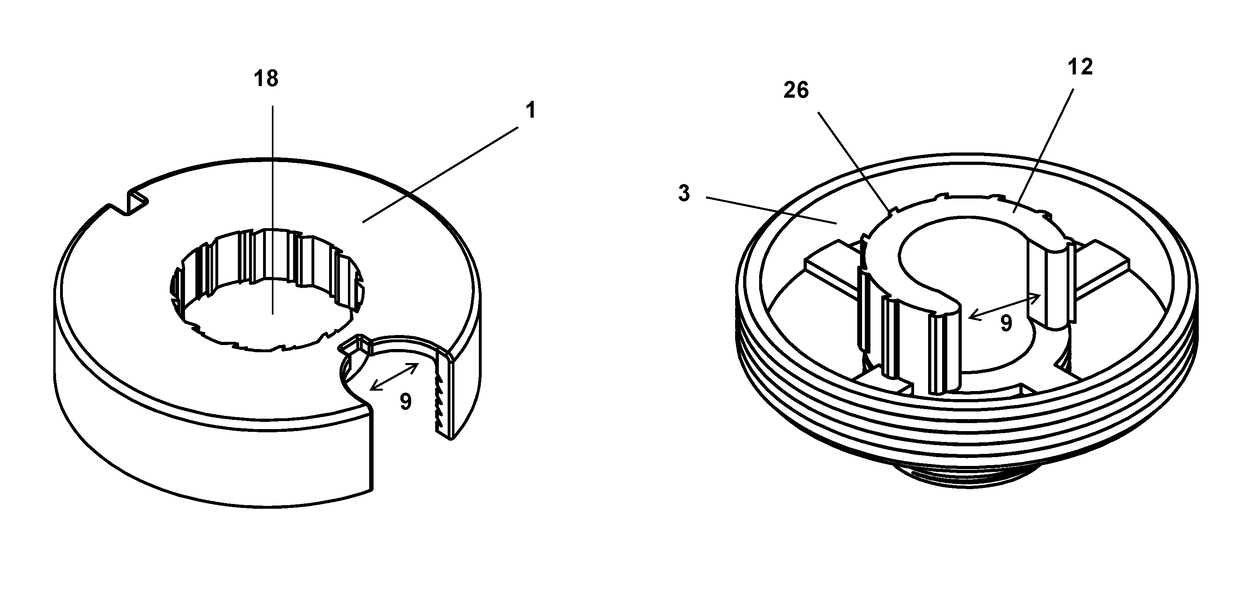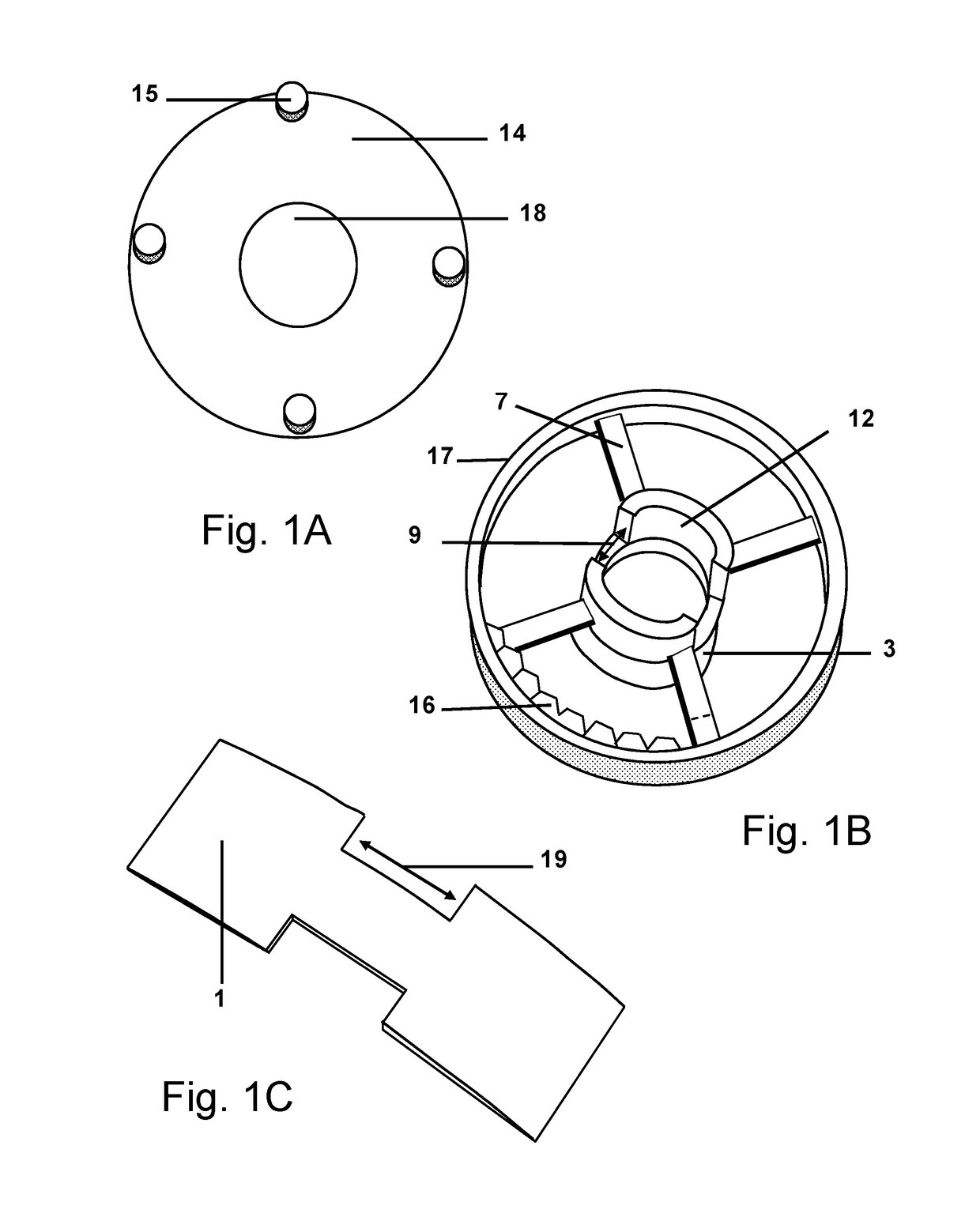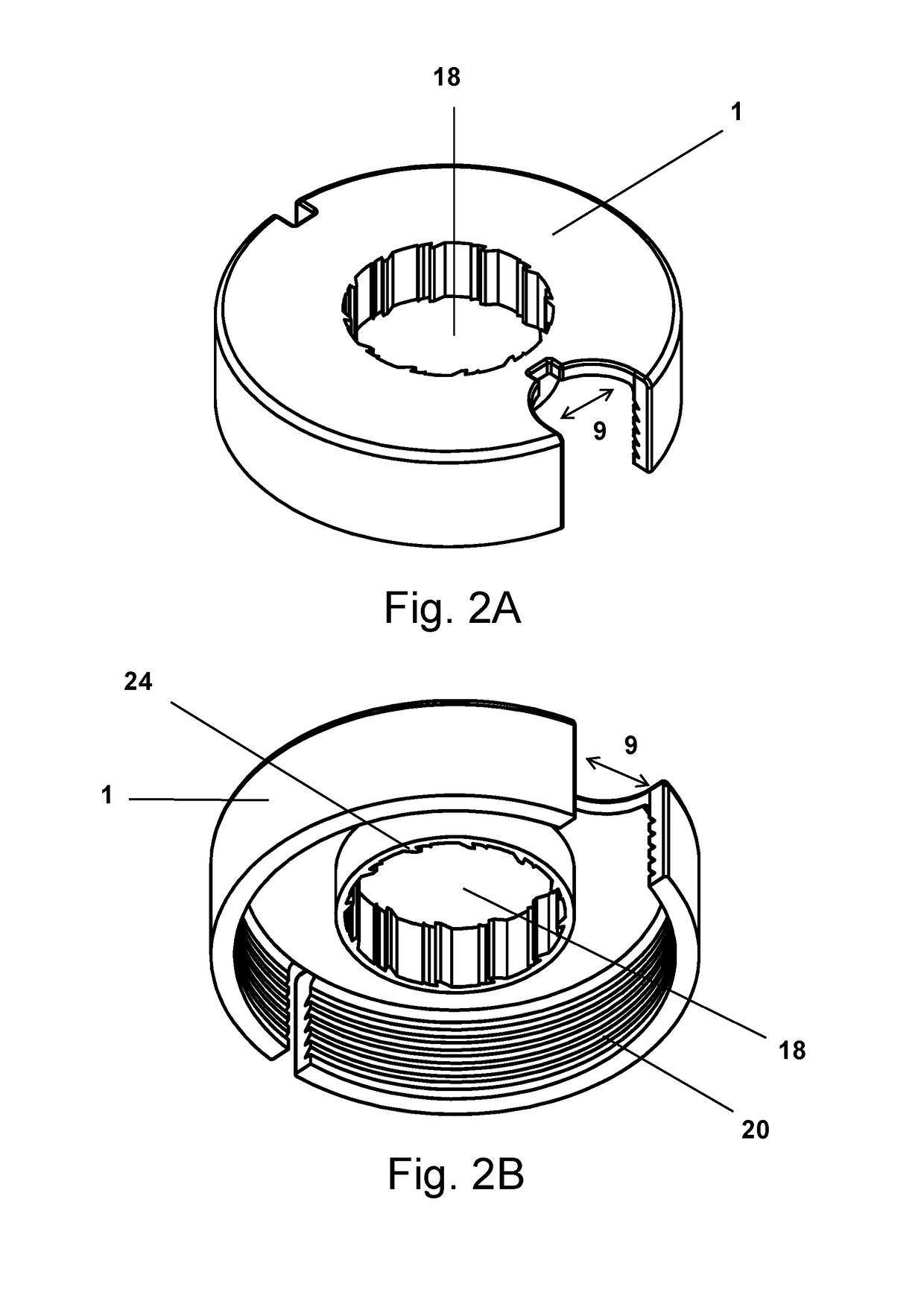Soft tissue tensioning and fixation device
a technology of fixation device and soft tissue, which is applied in the field of soft tissue tensioning and fixation device, can solve the problems of 40%, loss of tension, and affecting the ability of surgeons to estimate and maintain tissue tension, and achieve the effect of reliably maintaining tissue tension and quickly and efficiently installing
- Summary
- Abstract
- Description
- Claims
- Application Information
AI Technical Summary
Benefits of technology
Problems solved by technology
Method used
Image
Examples
Embodiment Construction
[0022]One embodiment of the novel device, depicted in FIGS. 1A, 1B, and 1C, comprises three principal components: a base 3, a movable disc 14 capable of rotating within the perimeter wall 17 of base 3 for tissue tensioning, and affixing component 1. The graft tissue passes into hollow sleeve 12 within base 3, and then through notch 9. In this embodiment, the base comprises two concentric circular features when viewed from “above.” (Throughout the specification and claims, unless context clearly indicates otherwise, it should be understood that directional terms such as “above,”“vertical,” the “z-axis,”“top,”“bottom,” and the like should be interpreted as being wholly or partly arbitrary. Such directional terms are used for convenience. They should be understood as having meaning relative to other directional terms—for example, the “top” direction is opposite the “bottom” direction. These terms should not be interpreted as referring to absolute directions (e.g., up or down relative t...
PUM
| Property | Measurement | Unit |
|---|---|---|
| diameter | aaaaa | aaaaa |
| soft | aaaaa | aaaaa |
| perimeter | aaaaa | aaaaa |
Abstract
Description
Claims
Application Information
 Login to View More
Login to View More - R&D
- Intellectual Property
- Life Sciences
- Materials
- Tech Scout
- Unparalleled Data Quality
- Higher Quality Content
- 60% Fewer Hallucinations
Browse by: Latest US Patents, China's latest patents, Technical Efficacy Thesaurus, Application Domain, Technology Topic, Popular Technical Reports.
© 2025 PatSnap. All rights reserved.Legal|Privacy policy|Modern Slavery Act Transparency Statement|Sitemap|About US| Contact US: help@patsnap.com



